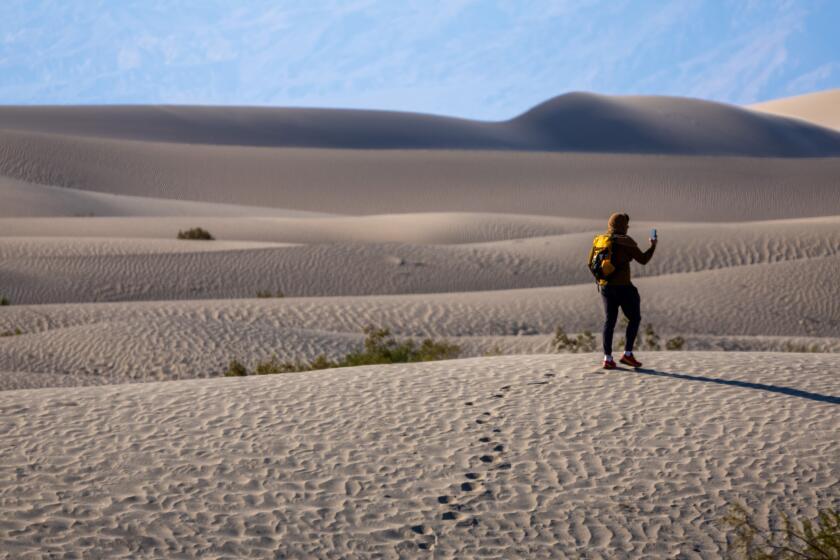According to a National Park Service news release, the 42-year-old Belgian tourist was taking a short walk Saturday in the Mesquite Flat Sand Dunes in 123-degree heat when he either broke or lost his flip-flops, putting his feet into direct contact with the desert ground. The result: third-degree burns.
“The skin was melted off his foot,” said Death Valley National Park Service Ranger Gia Ponce. “The ground can be much hotter — 170, 180 [degrees]. Sometimes up into the 200 range.”
Unable to get out on his own and in extreme pain, the man and his family recruited other park visitors to help; together, the group carried him to the sand dunes parking lot, where park rangers assessed his injuries.
Though they wanted a helicopter to fly him out, helicopters can’t generate enough lift to fly in the heat-thinned air over the hottest parts of Death Valley, officials said. So park rangers summoned an ambulance that took him to higher ground, where it was a cooler 109 degrees and he could then be flown out.



They’re that common basically everywhere, actually.
The UK has yellow tailed scorpions from southern Europe; and with climate change spreading a lot. Northern Europe is still close enough to the artic to give them difficulties; but there’s other species that are smaller that are just hard to find.
There’s also tons of pseudoscorpids that lack the tail (and are tiny,)
Ah. Well, perhaps I ought to amend it to an average Northern European, then. There are definitely no true scorpions in the Nordics, although we probably have some tiny pseudoscorpids around somewhere. Although I’ve hiked all over Southern Spain and never spotted a scorpion there either.
…which probably says more about my perceptiveness or lack-there-of than anything else.
/edited for spelling
They’re pretty hard to see. Researchers go out at night with UV lights to make them glow in the dark. Otherwise they’re very sneaky.
They’re pretty much restricted to temperate though so nordics are definitely too cold.
But they’ll be coming for you soon, /sadlol